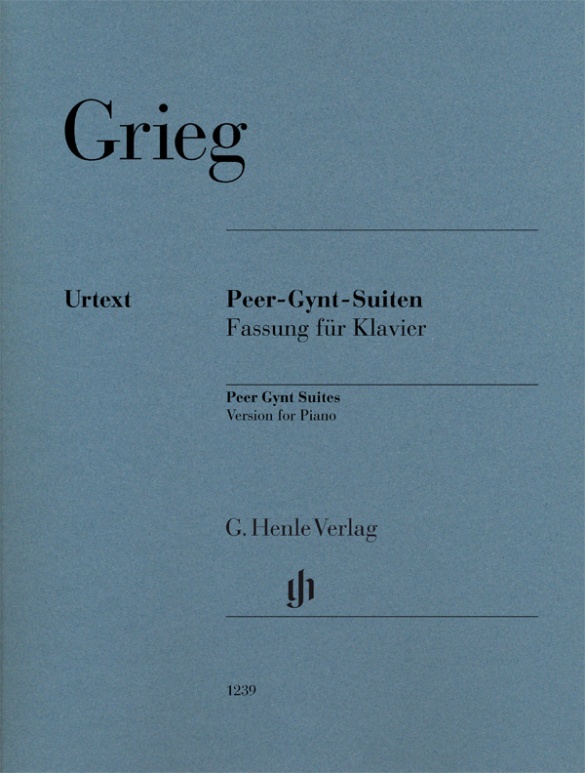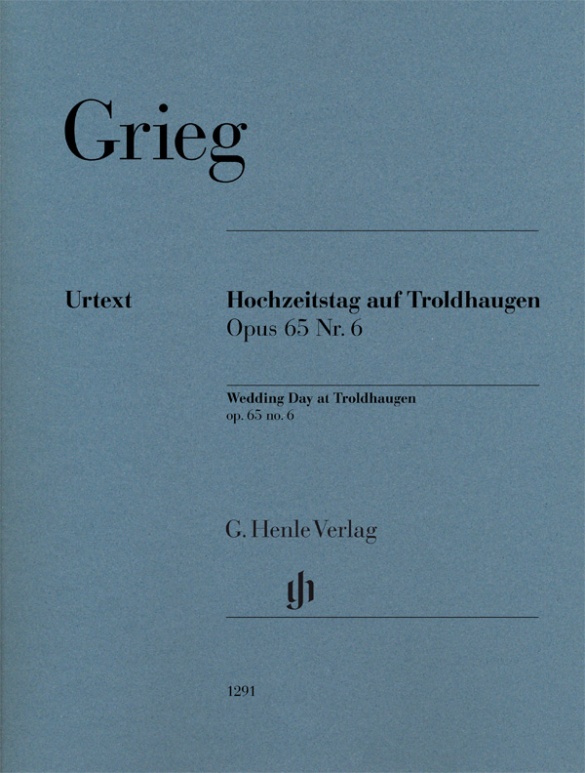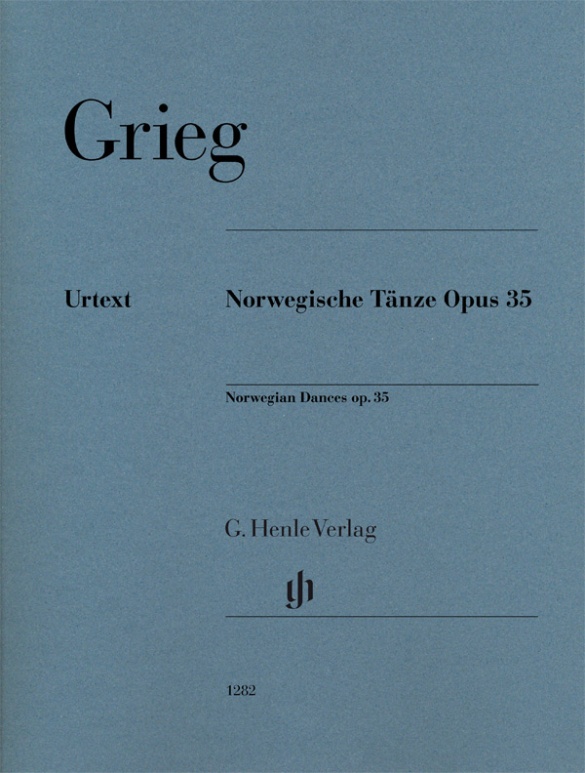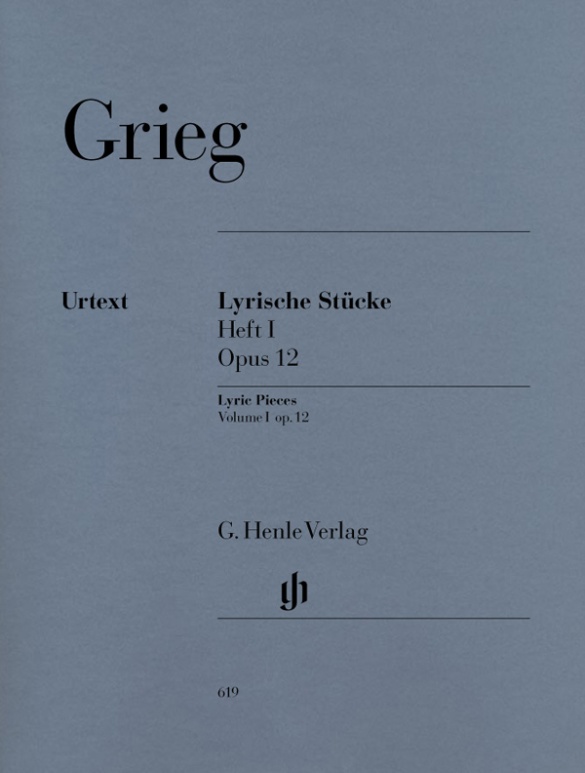

Edvard Grieg
Lyric Pieces Volume I, op. 12
The “Little Lyrical Pieces” – which is how the title still reads in the earliest editions – rank among Grieg’s most popular works. He had just turned 24 when these delightful and easily playable miniatures appeared, since when they have accompanied many piano students on the path towards classical music. Grieg himself would never have dreamed in 1867 that a further nine books of Lyric Pieces were to follow; the series ended in 1901 with Book Ten.
Content/Details
About the Composer
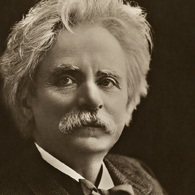
Edvard Grieg
Most important Norwegian composer of the nineteenth century and promoter of Norwegian folk music. His lyrical character pieces in particular are well known.
| 1843 | Born in Bergen on June 15, the son of a merchant and British consul; early piano lessons with his mother, who was a pianist. |
| 1858–62 | Studies at the Leipzig Conservatory. |
| 1862 | Concerts in Norway. |
| 1863 | Copenhagen, with the support of Niels W. Gade. |
| from 1864 | Interest in Norwegian folk music, which finds its way into his compositions. |
| 1866 | Breakthrough with a concert of Norwegian music. Conductor of the Philharmonic Society. |
| 1867 | The first of a total of ten volumes of Lyric Pieces for piano, Op. 12, with relatively simple piano settings. |
| 1868/69 | Composition of the Piano Concerto in A minor, Op. 16, which is based on Schumann’s piano concerto. |
| 1869 | “25 Norwegian Folk Melodies and Dances,” Op. 17, for piano. |
| 1873 | Begins work on the opera “Olav Trygvason,” Op. 50, after Bjørnson, which is never completed. |
| 1874 | Composition stipend from the state. |
| 1874/75 | Composition of incidental music to Ibsen’s “Peer Gynt,” Op. 23, the basis for the Peer Gynt Suites. |
| 1876 | Attends the premiere of Wagner’s “Der Ring des Nibelungen” in Bayreuth. |
| 1880–82 | Conductor of the “Harmonien” musical society in Bergen. Thereafter he accepted no other positions. |
| 1883 | Visit to Bayreuth; he hears Wagner’s “Parsifal.” |
| 1884 | Composition of “From Holberg’s Time,” Op. 40, his most popular work. |
| from 1885 | He moves into his villa “Troldhaugen” (near Bergen). Composition and revision of older works in spring and summer, concert tours in fall and winter. |
| 1891 | Composition of the “Lyric Suite,” Op. 54, orchestrated in 1905. |
| 1907 | Death in Bergen on September 4. |
About the Authors

Ernst-Günter Heinemann (Editor)
Dr. Ernst-Günter Heinemann, born in 1945 in Bad Marienberg (Westerwald), completed his schooling in Gießen and read musicology, philosophy and German in Marburg and Frankfurt/Main and also for some time Protestant church music. He did his doctorate on “Franz Liszts geistliche Musik. Zum Konflikt von Kunst und Engagement”.
From 1978–2010 Heinemann worked as an editor at G. Henle Publishers (in 1978 in Duisburg, from 1979 onwards in Munich). He edited a great many Urtext editions for the publishing house, including “Das Wohltemperierte Klavier”, Volume 1 by Bach and all of Debussy’s piano works. In addition, he wrote essays on Debussy, Grieg, Liszt, Mendelssohn and questions concerning general editing, as well as giving seminars on editorial practice for musicology students in Munich.
Product Safety Informations (GPSR)

G. Henle Verlag
Here you can find the information about the manufacturer of the product.G. Henle Verlag e.K.
Forstenrieder Allee 122
81476 München
Germany
info@henle.de
www.henle.com
Man wird dankbar sein für diese schöne Ausgabe von Griegs meistgespieltem Opus, dem der Herausgeber gut durchdachte Fingersätze beigefügt hat.
Schweizer MusikzeitungIn typical fashion, G. Henle Verlag, has published this work that demonstrate and reinforce that this publisher is the yardstick/benchmark for other publishers of classical repertoire. Apart from being Urtext editions, I have not seen better notational type-setting in terms of the clear arrangement of bars on the page, the width of the staves, the sizes of the notes and the quality of the off-white parchment which is always a pleasure to read from -- visual accessibility and integrity are never compromised. Apart from the type-setting; I personally find that the G. Henle Verlag editions are excellent in terms of convenient fingerings that are logically and clearly set out -- again it is a joy not to be overly cluttered with editorial markings. Essential publications for the shelves of any serious performer.
Australian Music Teacherrecommendations
autogenerated_cross_selling
Further editions of this title
Further editions of this title


